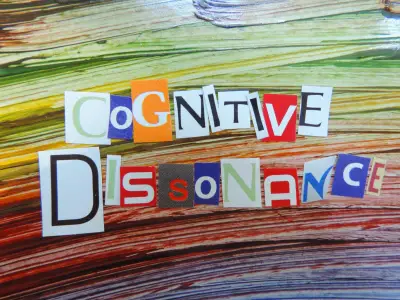Breaking a bad habit is something we all face at some point. Whether it’s procrastination, smoking, or unhealthy eating, the good news is that with the right strategies, you can replace these habits with healthier alternatives.
In this guide, we show you how to break bad habits and introduce positive ones, giving you the tools to set yourself up for lasting success.
Jump to:
- Understanding Habits: Why We Do What We Do
- 8 Steps for Breaking a Bad Habit
- The Four Laws of Breaking Bad Habits
- How Long Does It Take to Break a Habit?
- How to Change Your Behaviour: Tips for Long-Term Success
- How to Eliminate Bad Habits for Good
- Frequently Asked Questions
- Study Our Reinventing Yourself Diploma for £29
Recommended for you!
Best SellersUnderstanding Habits: Why We Do What We Do
A habit is a behaviour we perform regularly, often without thinking much about it. These behaviours become automatic over time because of repeated practice, which is why they can be so hard to break.
Habits are formed in the brain through a process known as the habit loop. This loop consists of three components:
- Cue: The trigger that starts the habit.
- Routine: The behaviour or action you take.
- Reward: The positive outcome or feeling that reinforces the behaviour.
Understanding this loop can be a powerful tool in your journey to break bad habits. When you can identify the cue and reward of a habit, you have a better chance of changing the routine itself.
8 Steps for Breaking a Bad Habit

Breaking a bad habit doesn’t have a quick fix, but there are proven steps that can make the process easier. Here’s a step-by-step approach that works for most people:
1. Identify the Habit and Its Triggers
The first step is to recognise what your bad habit is and when it happens. For example, if you bite your nails, you might realise you do it when you’re feeling stressed or anxious. Recognising your triggers, whether emotional or situational, allows you to manage or avoid them more effectively.
2. Identify the Cause
Dig deeper into why you engage in this habit. What need does it fulfil for you? Understanding the root cause will help you address the underlying issues, rather than just focusing on breaking the behaviour itself.
3. Set a clear goal
Be specific about what you want to achieve. Whether it’s quitting smoking or stopping overeating, define a clear, measurable goal. A well-defined target helps you stay focused and motivated as you work toward breaking the habit.
4. Make a Plan
Create a strategy for breaking the habit. Break your plan into smaller, achievable steps that can be tackled each day. This ensures you stay on track and aren’t overwhelmed by the process, making it easier to manage your progress.
5. Replace the Habit with a Healthier Alternative
Rather than simply stopping the habit, replace it with a healthier behaviour. For example, swap junk food for nutritious snacks like fruit or nuts. The key is to find an alternative that still satisfies your cravings or emotional needs, without the negative effects of the original habit.
6. Try the 3-3-3 Rule
A useful strategy is the 3-3-3 rule, which consists of three key steps:
- Change your environment: Adjust your surroundings to make it harder to engage in the bad habit.
- Replace the behaviour with a new one: Choose a healthier behaviour to replace the bad habit.
- Set a goal for 3 weeks: Commit to your new behaviour for three weeks and monitor your progress.
7. Monitor Your Progress and Celebrate Small Wins
Track your progress regularly. Celebrate every small victory, as it reinforces positive change. This helps you stay motivated and reminds you of how far you’ve come, even during challenging moments.
8. Be Consistent and Patient
Remember, breaking a habit is a gradual process. Stay patient and consistent in repeating the new behaviour. The more you practise the new habit, the easier it becomes, making it more automatic over time.
The Four Laws of Breaking Bad Habits

James Clear, the author of Atomic Habits, outlines four laws for breaking bad habits:
- Make it invisible: Remove triggers that encourage the bad habit.
- Make it unattractive: Focus on the negative aspects of the habit to make it less appealing.
- Make it difficult: Create barriers that make the habit harder to perform.
- Make it unsatisfying: Associate negative consequences with the habit, so it feels less rewarding.
These laws are designed to weaken the habit loop, making it harder for you to slip back into old habits.
How Long Does It Take to Break a Habit?
The idea that it takes 21 days to break a habit comes from a misinterpretation of early research. While some people may start to feel a shift in as little as three weeks, most experts agree that it can take longer to fully replace a bad habit with a new one. On average, it takes about 66 days, but this can vary depending on the person and the habit.
How to Change Your Behaviour: Tips for Long-Term Success

Changing your behaviour is often the most challenging part of breaking a bad habit. Here are some tips to help you stay on track and ensure your new behaviour sticks:
1. Use Reminders
Sometimes, we forget our goals in the hustle and bustle of daily life. Using reminders, such as sticky notes, phone alerts, or setting specific times to check in with yourself, can keep you motivated. This is particularly useful when you’re trying to avoid bad habits or implement new ones.
2. Start Small
Trying to change too much at once can be overwhelming. Instead of attempting to break every bad habit in one go, start with one habit and focus all your energy on it. Once you’ve succeeded in breaking it, move on to the next.
3. Celebrate Small Wins
Every time you successfully resist the urge to indulge in a bad habit, celebrate. Whether it's with a small treat or simply acknowledging your success, recognising your progress can help reinforce the new behaviour.
How to Eliminate Bad Habits for Good
The key to eliminating bad habits for good is consistency. With a clear plan and an understanding of your triggers, you can gradually reduce the frequency of the habit until it’s no longer a part of your life. Combine this with patience, and you’ll eventually replace the old behaviour with something much healthier.
Recommended for you!
Best SellersFrequently Asked Questions
How do I know if a habit is truly bad?
A habit is considered bad if it negatively impacts your well-being or prevents you from reaching your goals. It might affect your health, relationships, productivity, or self-esteem. If a behaviour makes you feel guilty or hinders progress in these areas, it's likely a habit worth breaking.
Can I break multiple bad habits at once?
While it's tempting to tackle everything at once, breaking multiple habits at the same time can be overwhelming. It's more effective to focus on one habit at a time. Once you’ve successfully replaced one bad habit with a healthier one, you can move on to the next.
How can I stay motivated when trying to break a bad habit?
Staying motivated can be tough, but celebrating small wins along the way helps build momentum. Use reminders, reward yourself for progress, and keep your goals visible. Having a clear reason for why you want to change can also keep you focused.
How do I avoid falling back into old habits?
To prevent falling back into old habits, it’s important to create new routines and environments that support your positive changes. Set clear boundaries and continually remind yourself of your reasons for breaking the habit.
What should I do if I feel overwhelmed by the process?
If you’re feeling overwhelmed, remember that breaking a habit is a gradual process. Take small steps and focus on one day at a time. Don’t hesitate to seek support from friends, family, or a professional if you need help staying on track.
How do I know if I’ve successfully broken a habit?
You’ve successfully broken a habit when it no longer feels like a regular part of your routine, and you can go days, weeks, or even months without engaging in the old behaviour. You'll also feel a sense of pride and accomplishment, and your new, healthier habits will start to feel more natural.
Study Our Reinvent Yourself Diploma for £29
If you’re looking to take your personal growth further and learn how to break bad habits for good, why not consider our Reinventing Yourself Diploma Course? This course explores behavioural change, self-improvement, and habit transformation. And you can enrol today for a special discounted price of just £29!












